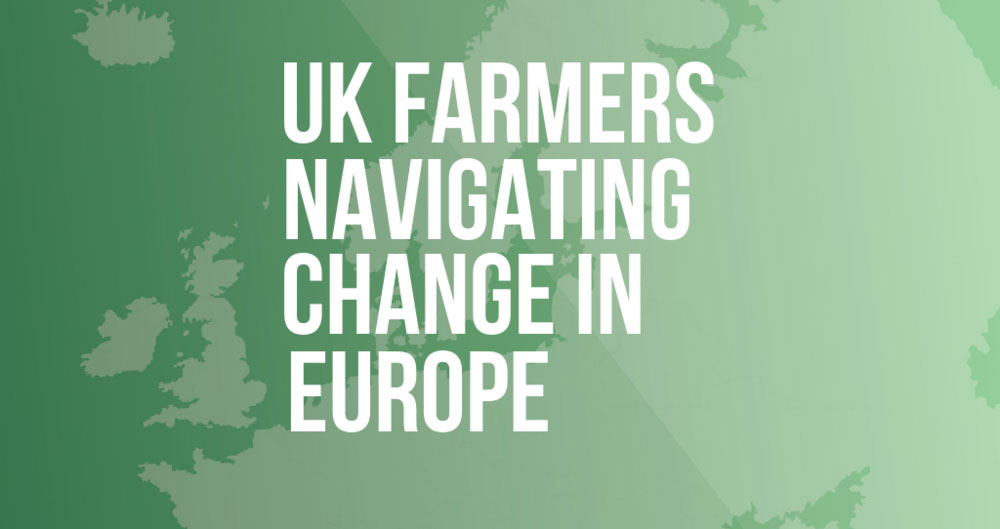Aimed at engaging with both domestic candidates and those from across the EU27, the new document UK farmers navigating change in Europe: An agenda for the future makes a series of policy asks.
The document covers six critical areas: Brexit, Trade and Standards, Climate Change, Environment, Healthy Plants and Animals, and Science and Innovation.
The Presidents of NFU, NFU Scotland, NFU Cymru and the Ulster Farmers Union said they wanted to engage with both domestic politicians and those from across the EU27 to highlight the importance of working with the farming industry.
In a joint statement, the Presidents said: “However long UK MEPs are in post it is important they understand and engage with UK farmers. Our industry provides the quality ingredients for our safe, traceable and affordable supply of food and underpins the UK food and drink sector, worth £122 billion.

“Whatever the outcome of Brexit we need a policy environment that allows farming businesses to continue to deliver benefits for the public such as high quality, affordable food and protection for our wildlife and countryside. These ambitions are not only hugely relevant for the UK but also across the EU and they start with ensuring that developments on Brexit prioritise the needs of farm businesses and the long-term prosperity of the agri-food sector.
“We must maintain our positive relationship with our European neighbours and work in partnership with them to develop an enabling regulatory regime that allows our sector to thrive.”
What are we are asking MEPs to do?
On Brexit
- Work to ensure that a no deal Brexit is avoided and that we do not face another ‘cliff edge’ scenario
- Engage positively with EU colleagues to limit the negative impacts of Brexit on UK and EU farmers
- Meet with us regularly to understand the specific concerns of UK farmers and act with these concerns in mind
On trade and standards
- Work with all policy makers to protect agri-food trade in a future relationship between the UK and the EU
- Ensure that trade deals create opportunities for agriculture as well as fully taking into account the sensitives of each sector
- Safeguard the high production standards of UK agriculture and not allow them to be undermined by imports that do not meet the same high specifications
On climate change
- Champion policies that allow farmers to reduce emissions by boosting farm competitiveness and profitability.
- Support incentivising investment in renewable energies as it develops into a self-sufficient industry.
- Support policies that enable farmers to adapt to climate change through new technologies and management practices.
On the environment
- Support environmental legislation that has a clear evidence-base. Targets aimed at improving air, soil and water quality and for biodiversity must be achievable, measurable and affordable in order to allow farmers to continue producing food.
- Recognise that more targeted environmental measures are more effective than a one-size-fits-all approach.
- Promote farm infrastructure improvements to improve water and biodiversity.
On healthy plants and animals
- Work towards a system of regulating plant protection products that is led by science and accounts for risk, pest resistance and production impacts.
- Approach debates on animal health and welfare from a scientific and factual standpoint, bringing evidence to bear on this subject.
On science and innovation
- Work to ensure that science and reliable data sources are the foundation of agriculture policy.
- Promote the importance of having farmers play a central role in agricultural research and development.
- Recognise the importance of innovation and the benefits of the UK remaining at the forefront of innovative developments and thinking.
You may also be interested in:
Politics in Brussels: How the coming months will affect UK farming
NFU expert insight: Why does the President of the European Commission matter for UK farmers?
Implications of an extension to the Article 50 negotiating period

